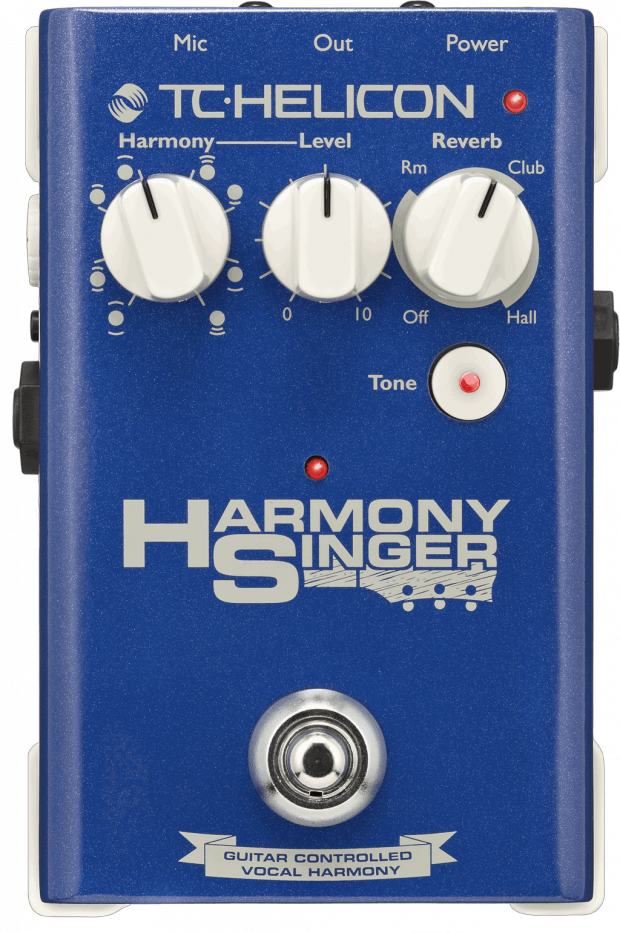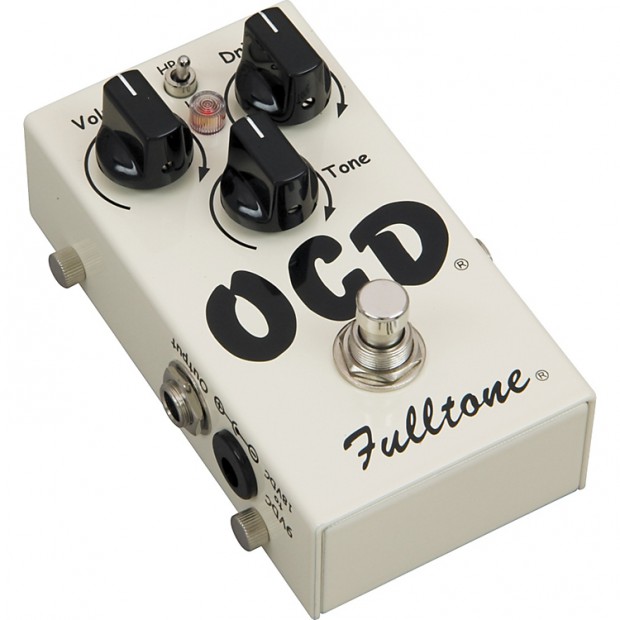
TC HELICON HARMONY SINGER EFFECTS PEDAL
Intuitive vocal harmony effects technology (particular of the type that tracks a guitar signal to generate harmonies in real time) is by no means a brand new concept. DigiTech were one of the first companies to successfully market the concept with the first generation VoiceLive effects over a decade ago, and TC Helicon were not far behind in introducing similar technologies.
The TC Helicon Harmony Singer is a stomp box-styled device. It is designed to work in series with regular guitar effects pedals if need be, but connection can be as simple as microphone and guitar into Harmony Singer and Harmony Singer into PA system for musicians who like to keep things simple. The guitar connects the same way players would connect other stomp box effects but for best results the Harmony Singer should be placed first in the signal chain.
The harmonies can be punched in and out by switching the effect on and off, or they can be set to be activated if the switch is held down which is handy for harmonies on short phrases. The Harmony Singer also features TC Helicon’s Adaptive Tone for a ‘produced’ vocal sound, and while the reverb can be adjusted, the tone, de-essing and compression settings are hard-wired and automatically set for live performance.
Musicians do not require any real theory or arranging skills to use Harmony Singer. Essentially the unit ‘listens’ to the chords being played on the guitar and provides appropriate harmonies – either a third or fifth above or below the note being sung in a number of dial-in combinations – and applies the resulting harmony pattern to the vocal. For newer musicians, this provides a simple but effective harmony arrangement tutorial, allowing performers to hear the result of theoretically applied harmonies that they may not have otherwise come up with.
Sister company TC Electronic – renowned in for the quality of its reverb styles – delivers reverb effects for the device in three incarnations: room, club and hall. As an extra professional touch, pressing and holding the effect on/off switch will bypass the reverb effect for addressing the audience between songs.
While many solo musicians swear by the technology, there are some who find the resulting effects either a little robotic or slightly inaccurate in the tracking. Often these issues can be attributed to user error (running the effects too hard, tuning/voicing problems with chords) but nevertheless the ultimate test of a real-time vocal harmony processor does come down to those two aforementioned issues. The Harmony Singer passes the test convincingly on both counts and is a worthy addition to the solo performer’s live rig.
The TC Helicon Harmony Singer retails for $319.

OCD FULLTONE OVERDRIVE EFFECTS PEDAL
If you think about the classic overdrive tones we all know and love – for example AC/DC, Led Zeppelin, Free, Joe Walsh – there is a common thread regardless of each artist’s individuality and approach: transparency in the overdriven tone, the ability to still hear the chordal qualities, the string characters, the overtones and the ‘personality’ of the guitars being played. It’s the type of sound that a classic amplifier played at high volume tends to deliver. Therein lies the challenge for any quality overdrive pedal: being able to deliver that tonal quality at lower volumes through an array of amplifiers.
The OCD Fulltone Overdrive has been finding its way onto many a pedalboard in recent years and deservedly so. It is a truly responsive, transparent, powerful overdrive that screams out authenticity. For example, played through a Fender Hot Rod amplifier, it’s hard to believe that the OCD is providing the gain rather than the amp itself. There is a power and presence to the pedal that many other devices simple fall short on.
Back off the guitar volume and the OCD cleans up appropriately, just like an overdriven valve amp would. There are many tonal variations to explore by utilising the OCD’s controls: Volume, Drive, Tone, and a high-pass / low-pass filter toggle switch.
The OCD Fulltone is a rocking winner at an RRP of $199.
CHRIS GIBBS